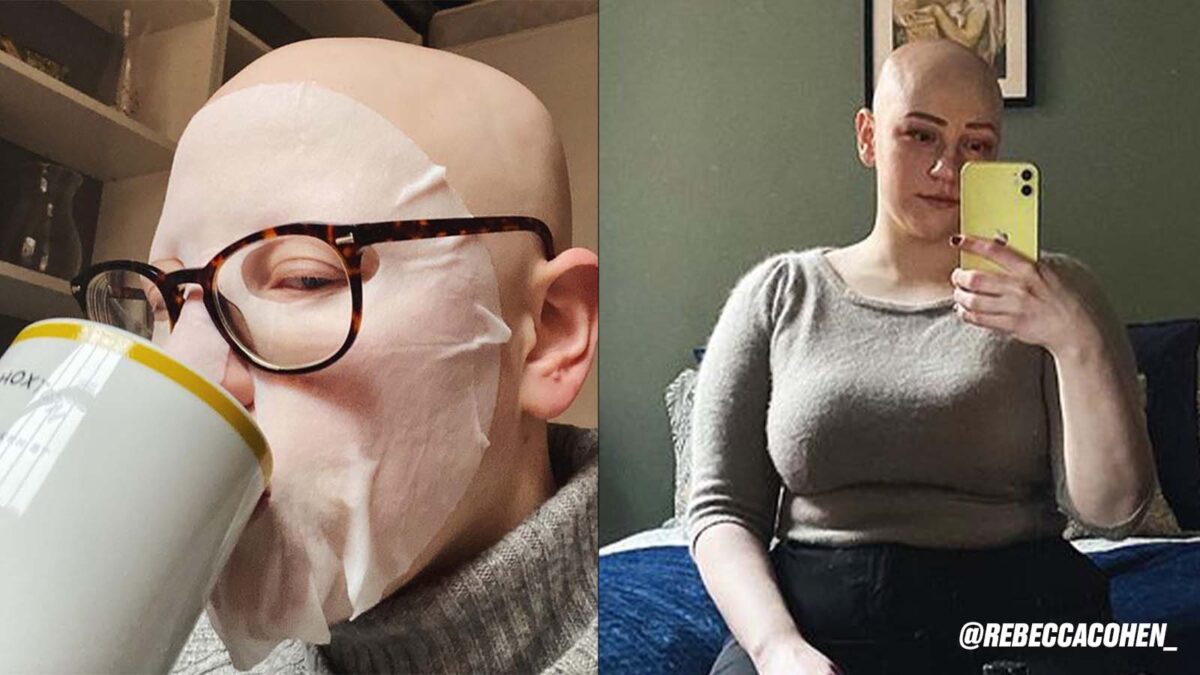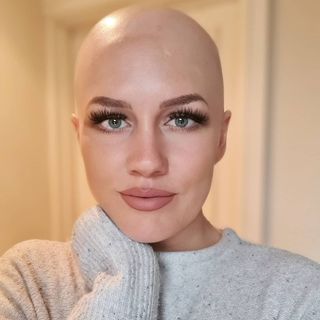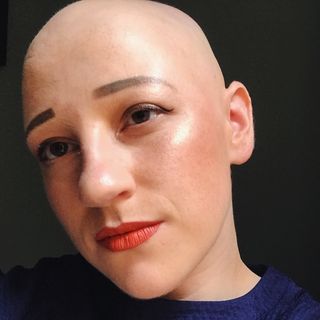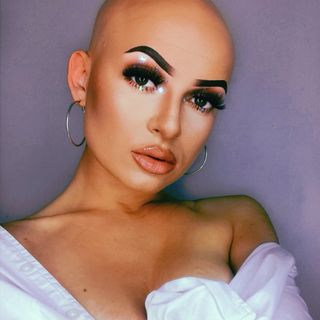Alopecia, or alopecia areata, is a common disorder which affects around 15 in every 10,000 people in the UK alone. The condition results in hair loss, whether that be mild or extreme.
What is alopecia?
Alopecia is an autoimmune syndrome which causes hair loss. The disorder can cause hair can fall out in small patches or completely, resulting in the complete loss of hair on the scalp. In some cases, the loss of hair can extend to the entire body.
Alopecia can affect anyone of any age or gender, but most cases occur before the age of 30. The disorder can develop suddenly over a few days and there is no know cure for alopecia, although many people who experience it lose a few patches of hair and go on to experience a full recovery without treatment.
What causes alopecia?
Alopecia occurs when white blood cells attack the cells in hair follicles and cause them to shrink, which slows down hair production. Although it is not known why the body’s immune system attacks the hair like this, there is little evidence to suggested that alopecia is caused by stress. Genetics can be a factor; one in five people with alopecia has a family member who has also developed the condition or have another autoimmune disorder such as hyperallergic or thyroiditis.
What are the different types of alopecia?
Alopecia areata totalis: a total loss of hair on the head.
Alopecia areata universalis: a total loss of hair on the body.
Diffuse alopecia areata: a thinning of the hair with no lost patches.
Ophiasis alopecia areata: a type of hair loss that creates a band shape around the head.
What are the symptoms of alopecia?
Hair loss from the head is the most common symptom of alopecia areata, but hair on the face (beards and eyelashes) and body can also be affected. In some cases, people feel a burning or itching feeling before the hair loss occurs.
Symptoms of alopecia can also be seen in the fingernails and toenails, and these can sometimes be the first signs of the condition. These symptoms can be pinpoint dents in the nail, white spots and lines, a rough texture on the nails, a lack of shine, or thin and splitting nails.
Can you recover from alopecia?
In some cases, alopecia can become a continuous cycle of hair loss and regrowth, and in many cases, a full recovery can occur within one year. About 10% of alopecia cases will develop into alopecia totalis or alopecia universalis.
@rebeccacohen_'s alopecia story
‘If you’re not fully up to speed on alopecia, the name covers both permanent and non-permanent hair loss and is an auto-immune disorder. The first time I heard of it was in the doctor’s surgery, as I explained to my GP that a patch about the size of a 50p coin had formed near the nape of my neck and had no idea what was going on.
‘I first noticed my hair loss when I was in my second year at university. I didn’t particularly notice that there was more hair falling out as neither my hairbrush nor shower looked any different than usual, but my hair just didn’t seem to be growing back. I now know that hair follicles work in cycles: over a period of about three months each hair follicle will grow and fall out, but you don’t notice this as the thousands you have on your head all rotate on different cycles. What I did notice, was the round patch that appeared at the nape of my neck. It was pretty easy to cover up if I kept my hair down, but I was worried as I didn’t know if this was a sign of another underlying health issue.
‘My GP, in all honesty, wasn’t great, but referred me to a dermatologist. This was my start of many, many treatments, from steroid creams and injections to DCP (AKA diphencyprone, which is a topical medicine they apply to your head to irritate skin to promote hair growth). Right now, there isn’t a ‘cure’ for alopecia as, like a lot of auto-immune diseases, there’s still a lot of research that needs to be done.
‘They didn’t manage to find the right treatment for me, and I’ve since lost all my hair. I did have alopecia universalis which is a complete loss of all hair, including body hair, however, have had my eyelashes grow back in the last few months so I’m indulging in all the TikTok hyped mascaras! You may also hear people say alopecia totalis (losing all hair on your head, including eyelashes and eyebrows) and alopecia areata (pattern baldness). It does take a while to come to terms with losing your hair as it’s a massive part of anyone’s personality or look, but I do try to own it and encourage anyone experiencing alopecia to get to learn to rock it. After all, the less money you spend in the hairdresser, the more you can spend on your nails, right?’




